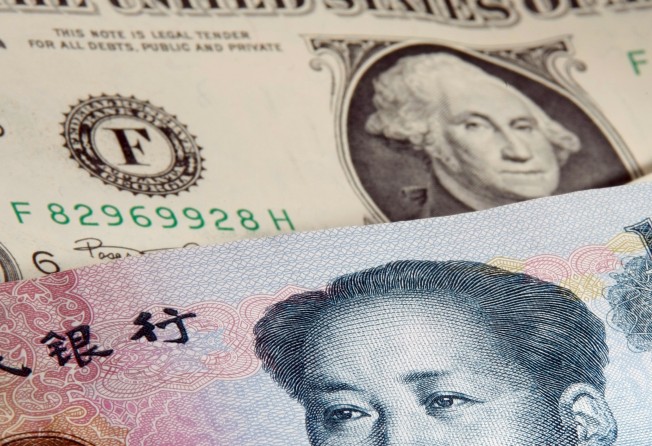Hong Kong monetary chief hits back at speculators, vows to defend peg of local dollar to US greenback

Hong Kong Monetary Authority (HKMA) chief executive Norman Chan Tak-lam hit back on Monday at plans by hedge fund managers led by George Soros to short Asian currencies, saying the local financial system and stock markets are stronger and would make it ‘very expensive” for these speculators to repeat their successful attacks during the Asian financial crisis in 1997.
“There were rumour of some speculators are trying to attack the Hong Kong dollar peg,” Chan said. “The HKMA will closely monitor the market situation even amid the Lunar New Year holiday. However, we should note that the current Hong Kong financial market is substantially stronger than in 1997. We do not need to be overly worried.”
Chan said Hong Kong’s aggregated balance or the liquidity of local banking sector stood at HK$363 billion as of January 29, which is 224.4 times than the HK$1.5 billion in July 1997. Foreign reserves is at HK$422 billion, which is 5.2 times higher than the HK$67.6 billion in 1997.
The Hong Kong stock market cap is at HK$21.818 trillion, which is 3.7 times bigger than in 1997 while the current PE ratio is only 8 times, cheaper than the 19.2 times in 1997.
“If the speculators now want to repeat the same strategies in 1997 to short sell the Hong Kong dollar to try to push the interest rate up and to benefit from a falling stock markets, they would need to use hundred of billions of dollar which would be very expensive for them to do so,” Chan said.
Kyle Bass’s Hayman Capital Management told the Wall Street Journal on Monday he believes the yuan would fall as much as 40 per cent over the next four years and, like Soros, he is shorting Asian currencies.
Soros drew the ire of Chinese officials after the billionaire hedge fund manager said he China would have an economic hard landing and the yuan and Hong Kong dollar may fall sharply as a result.
“I believe the yuan would continue to be weaker in a gradual process but it would not be depreciated substantially,” said King Au King-lun, chief executive of Eastspring Investments (Hong Kong).
The yuan had been down by up to 2 per cent last month but intervention by the People’s Bank of China’s pared the loss to 0.66 per cent in January. The offshore yuan softened to 6.6080 to the dollar early on Monday before bouncing back to trade at 6.6035 in the afternoon, weaker by 0.15 per cent on the day. The onshore yuan traded at 6.5786 to the dollar, off by 0.05 per cent.
The Hong Kong dollar traded at 7.7837 to the US dollar on Monday, weaker by 0.04 per cent from Friday after a drop of 0.5 per cent last month. It hit an 8-1/2 year low at 7.8294 last month before the HKMA intervened.
Au said hedge funds could successfully attack a number of Asian currencies in 1997 because many Asian economies were weak.
“Now the situation is different. The Asian economies and banking systems have improved while Chinese forex reserve has gone up to US$3.3 trillion and it could easily fend off speculative attacks,” he said.
Tommy Ong, managing director of treasury and markets at DBS Hong Kong, also believes the yuan would fall only 3 per cent this year as China would not accept massive capital outflow.
“Both the PBOC and HKMA have huge reserves to defend their currencies. The Hong Kong dollar peg would stay on while the offshore yuan would trade at the 6.60 level in the near term,” Ong said.